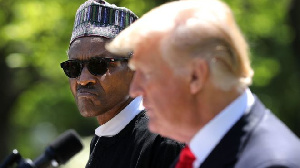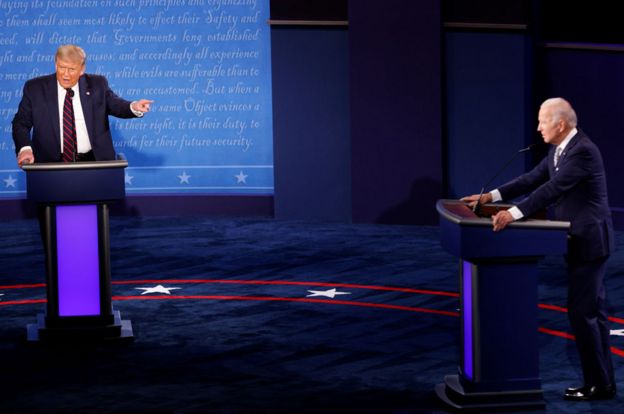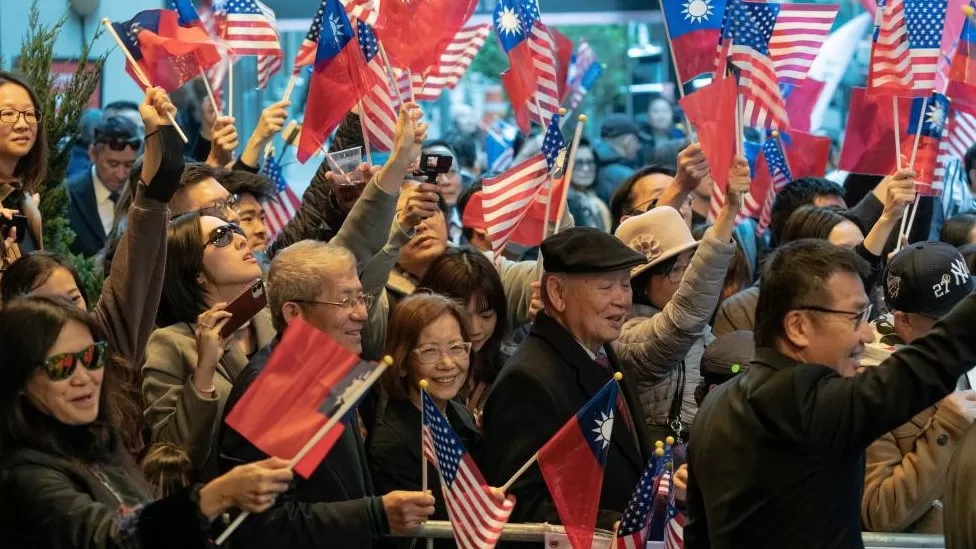What are the US’s intentions in Africa?

The United States has been losing influence in Africa – but its top diplomat to the continent wants to turn this around.
“For too long when investors have knocked on the door, and the Africans opened the door, the only person standing there was the Chinese,” Tibor Nagy, the US assistant secretary of state for African Affairs recently told the BBC.
China’s trade with the continent has eclipsed America’s in the past decade, and in 2018 was more than three times larger.
Some of the most important US diplomatic posts in African capitals have remained unfilled since President Trump assumed office.
Mr Nagy says he wants to turn this around and restore America’s influence on the continent. “My job is to make sure when there’s a knock on the door, there’s an American as well,” he said.
So can America turn the tide and compete with China on the African continent?
Depleted diplomatic missions
The appointment of American ambassadors to African capitals has moved ahead at a glacial pace over the past two years. Some high-profile posts, including South Africa and Nigeria, have remained unfilled since President Trump removed all US ambassadors around the world following his inauguration in 2017.
Some have been nominated by the president, like South Africa and Nigeria, and are awaiting confirmation by the US Senate but others, such as Chad and Tanzania, have been left vacant.
Mr Nagy was only appointed to his position as the State Department’s permanent representative for Africa in July 2018. It was previously a role left empty and then filled by a temporary appointment.
Analysts say that, in contrast, China has sent senior foreign officials to African countries.
“In South Africa, China has a highly-ranked diplomat – that shows it really matters to Beijing,” says Lina Benabdallah, an expert in China-Africa relations at Wake Forest University.
A number of other emerging powers, like Turkey and India, are also expanding their diplomatic presence.
The Indian government has recently approved plans for 18 new embassies in Africa.
“(It’s difficult) getting Africa to be a priority in the administration,” says Eric Olander, founder of the Africa-China Project, a non-profit organisation dedicated to exploring China’s engagement with Africa.
Undiplomatic language
Relations have not been helped by statements about Africa from US government officials, including the president, which have been seen as highly offensive.
Mr Trump is reported to have described African nations as “shithole countries” and spoken of Africa as a place where his friends were going to try to get rich.
He also weighed into the highly controversial issue of land expropriation from white farmers in South Africa, provoking an angry response from the government there.
“The fundamental problem is that you can’t wish away the president – he has described all of Africa in the most vile terms,” says Reuben E Brigety, a former US ambassador to the African Union under President Obama.
The US State Department maintains it values its partnerships throughout Africa and that its commitment is as strong as ever.
The United States has been the single largest source of direct investment into Africa, but its contribution is on the decline.
In 2018, China announced $60bn worth of investments (following $60bn committed in 2015) which included infrastructure projects as part of its Belt and Road initiative to build global trade routes.
Ms Benabdallah says that trade between the United States and African nations has dropped because of increased interest from not only China, but other countries such as Russia and Turkey.
“I think it’s because competition from all the other countries has been on the up from the last decade,” says Ms Benabdallah.
China’s economic growth has shown signs of a slowdown recently and that may well affect its levels of trade and investment in Africa in the future.
But given the increasing competition from around the world for doing business with African countries, the United States will have to demonstrate a renewed vigour in its relations with the continent if it really wants to engage with its emerging economies.
Source: bbc.com





